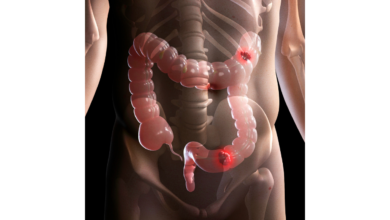Gastrointestinal Motility Disorders: Diagnosis and Treatment
The Role of Gastrointestinal Motility in Health and Disease

What is Gastrointestinal (GI) Motility Studies ?
Gastrointestinal (GI) motility studies are diagnostic tests used to evaluate how well food moves through the digestive system. These tests can help identify problems with the muscles that control the movement of food, such as the esophagus, stomach, small intestine, and large intestine.
Why Gastrointestinal (GI) Motility Studies is required?
GI motility studies are often performed to:
- Diagnose motility disorders: Conditions like gastroparesis (delayed stomach emptying), achalasia (difficulty swallowing), or irritable bowel syndrome (IBS) can be diagnosed through these studies.
- Evaluate treatment effectiveness: They can help assess the effectiveness of treatments for motility disorders, such as medications or surgery.
- Investigate symptoms: GI motility studies can help identify the underlying cause of symptoms like heartburn, bloating, constipation, or diarrhea.
which are the method of Gastrointestinal (GI) Motility Studies ?
Several different methods can be used to assess GI motility, including:
- Esophageal manometry: This test measures the pressure in the esophagus during swallowing.
- Gastric emptying studies: These studies measure how long it takes for food to leave the stomach.
- Small bowel transit studies: These studies measure the time it takes for food to pass through the small intestine.
- Colonic transit studies: These studies measure the time it takes for food to pass through the large intestine.
- Wireless motility capsule: This involves swallowing a small capsule containing sensors that monitor GI motility over several days.
who should go for Gastrointestinal (GI) Motility Studies?
Individuals who may benefit from GI motility studies include:
- People with symptoms of dysphagia (difficulty swallowing), heartburn, bloating, constipation, or diarrhea.
- Patients with diagnosed motility disorders.
- Those undergoing evaluation for gastroparesis, achalasia, or IBS.
- Individuals considering surgery for GI motility problems
What are the results of Gastrointestinal (GI) Motility Studies ?
The results of GI motility studies can help identify abnormalities in the movement of food through the digestive system. This information can be used to diagnose specific conditions and guide treatment decisions.
What are the components of Gastrointestinal (GI) Motility Studies ?
The specific components of GI motility studies will vary depending on the type of test being performed. However, they typically involve:
- Preparation: You may need to fast or avoid certain foods before the test.
- Procedure: The specific procedure will depend on the type of study being performed. It may involve swallowing a capsule, inserting a probe into the esophagus or rectum, or undergoing imaging tests.
- Analysis: The results of the study will be analyzed by a healthcare provider to identify any abnormalities.





